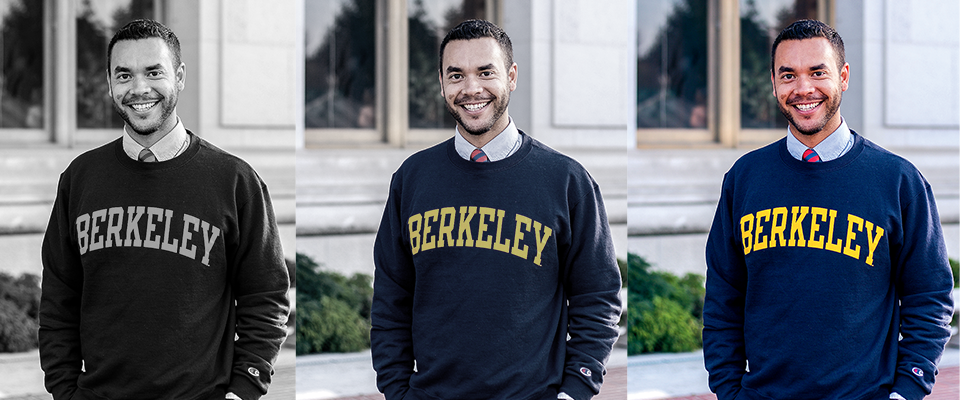For Esteem Brumfield, a lack of formal education was only one of many obstacles on his path to Berkeley.
One of the casualties of the pandemic was UC Berkeley grad Esteem Brumfield’s Fulbright Fellowship in South Africa, where he was researching the country’s prison system. It was canceled. But don’t worry about him; he’s already falling back on Plan B: going to grad school this fall at Brown, where he’ll be studying the connection between health care and incarceration.
Not bad for a guy who grew up illiterate.
“I could read bus stops and stop signs and knew how to sign my name and the date, but that was about it,” he says.

The reason is that he never went to school. His parents, both radical activists with a deep mistrust for “the system,” were constantly on the run and trying to stay under the radar. He knew no other life from the day he was born—in prison.
“They shackled [my mother] when she was going into labor. The nurse told the officer to unshackle her, but he said, ‘We don’t want her to escape.’” (The practice was banned in late 2018.)
He also had no birth certificate—“It took me four years to prove I was a U.S. citizen”—and no Social Security card until he was 21. “The Social Security office couldn’t believe someone could have been born here, not sent to school, and remain completely off the grid,” he says.
When he was seven his parents were arrested again, so he went to live in a motorhome in Oakland with his godmother and his beloved older brother, Triumph.
“He really became a parent to me. He taught me how to take public transportation by myself, how to cook, clean, do laundry at the laundromat, and grocery shopping. He saw the need for making sure I developed self-sufficiency.”
But when Esteem was 13, Triumph began to show signs of what was later diagnosed as schizophrenia. Their parents made things worse by discouraging him from taking his meds because they didn’t believe in Western medicine. It wasn’t long before he was on the street.
“Businesses would call the police and say there’s a man sleeping on the sidewalk, so he’d get sent to Santa Rita Jail or John George Psychiatric Hospital for awhile and get released. Just this revolving door of incarceration and lack of support networks. I thought this was inhumane and fundamentally unjust. I began to see incarceration as a public health epidemic.”
He decided to do something about it, starting with becoming a civil rights lawyer. But before that, he had to get a basic education. So he turned to Berkeley City College.
“They had to fill out the enrollment form for me. I didn’t know if I was a U.S. citizen; I didn’t even know what that meant. I was afraid that if I filled it out incorrectly, they would reject my application.
“But they accepted me, and for my first class, I was assigned to write a short autobiography. I wanted to write that I wanted to go to law school, but I didn’t know how to write ‘want,’ ‘law’ and ‘school.’ I didn’t know what I didn’t know.”
It took him a long time to finish. He flunked Algebra 2 five times before finally passing. He also had to take a couple of years off midway to earn enough to pay for the rest of his education. But before he got his A.A. in 2016, he made the honor roll in his final semester.
“The entire community college rallied behind me and got me to where I am,” he says, “and I’m very grateful for that.”
Then it was off to Cal, where he double majored in rhetoric and political science, interned at the Washington Lawyers’ Committee for Civil Rights and Urban Affairs, and was chosen to speak at the Rhetoric department’s commencement ceremony last year.
After he gets his next degree from Brown, he’ll go to law school, then set his sights on his ultimate goal, the United States Supreme Court, where he plans to interpret the law in a new way—“one that is not punitive or vindictive,” he says, “but seeks out new ways to approach justice.”
Don’t bet against him.
Reach Martin Snapp at catman442@comcast.net.
From the Fall 2020 issue of California.



















